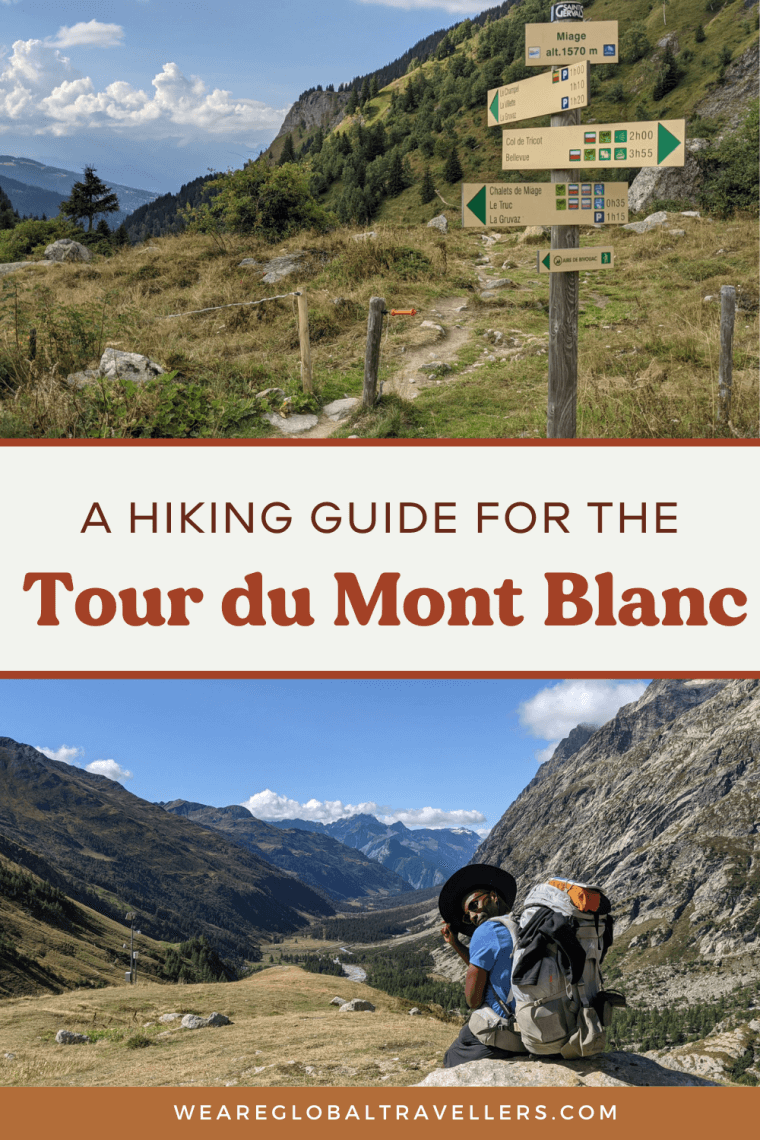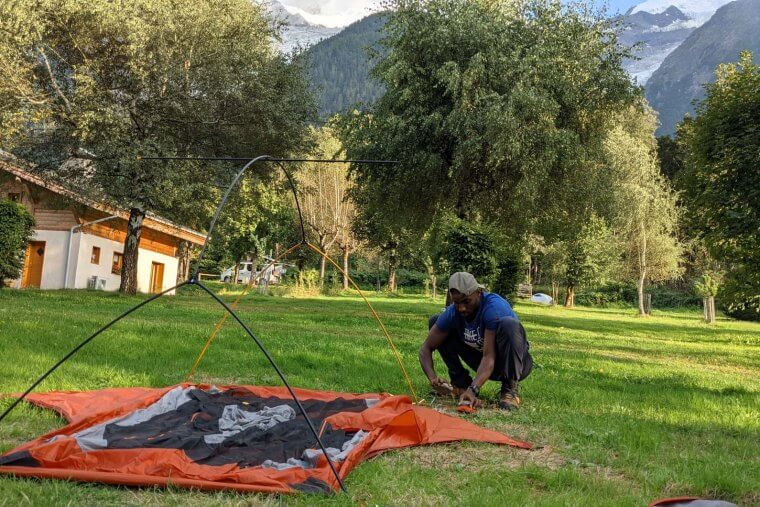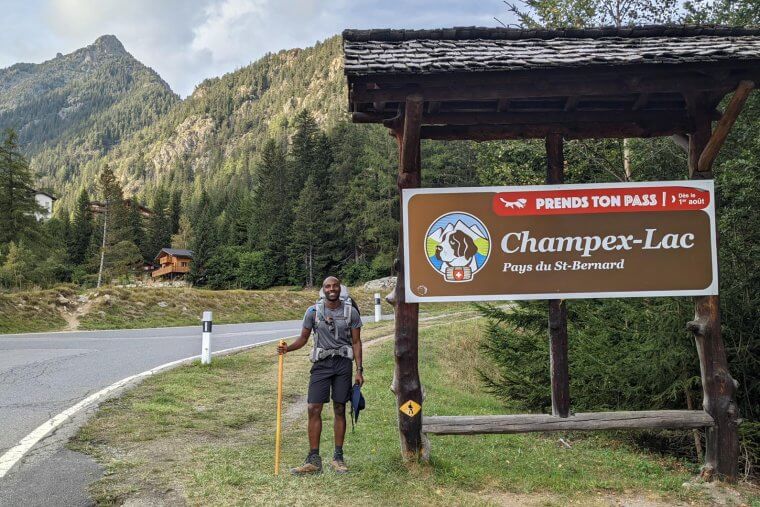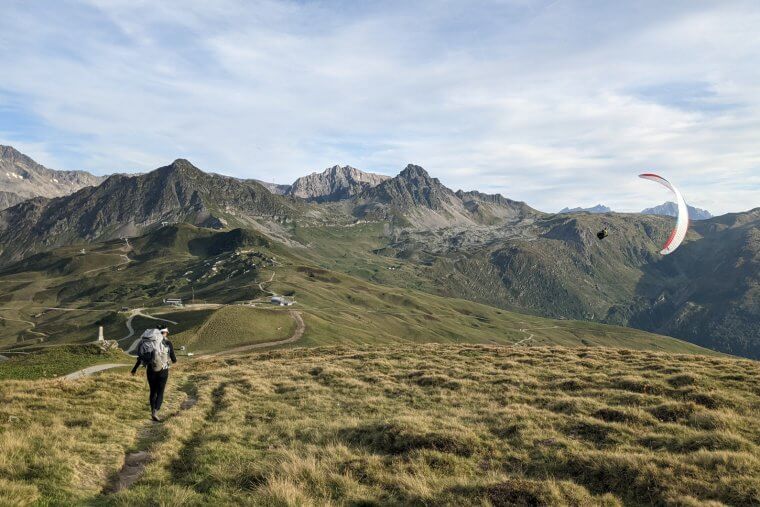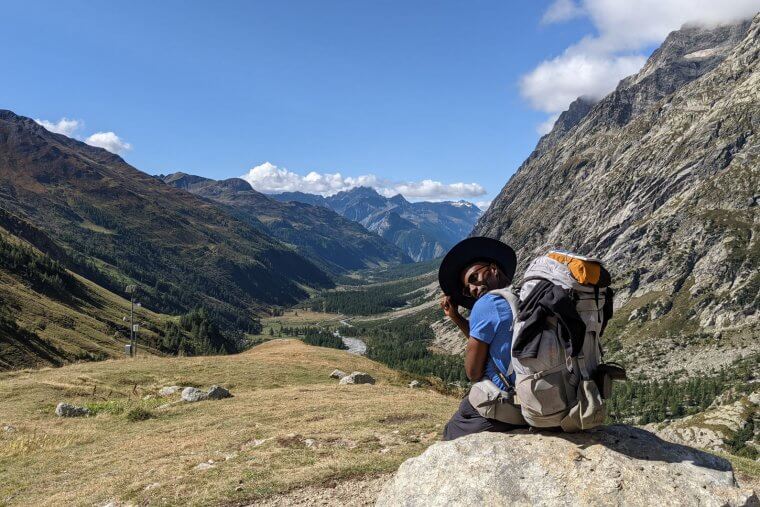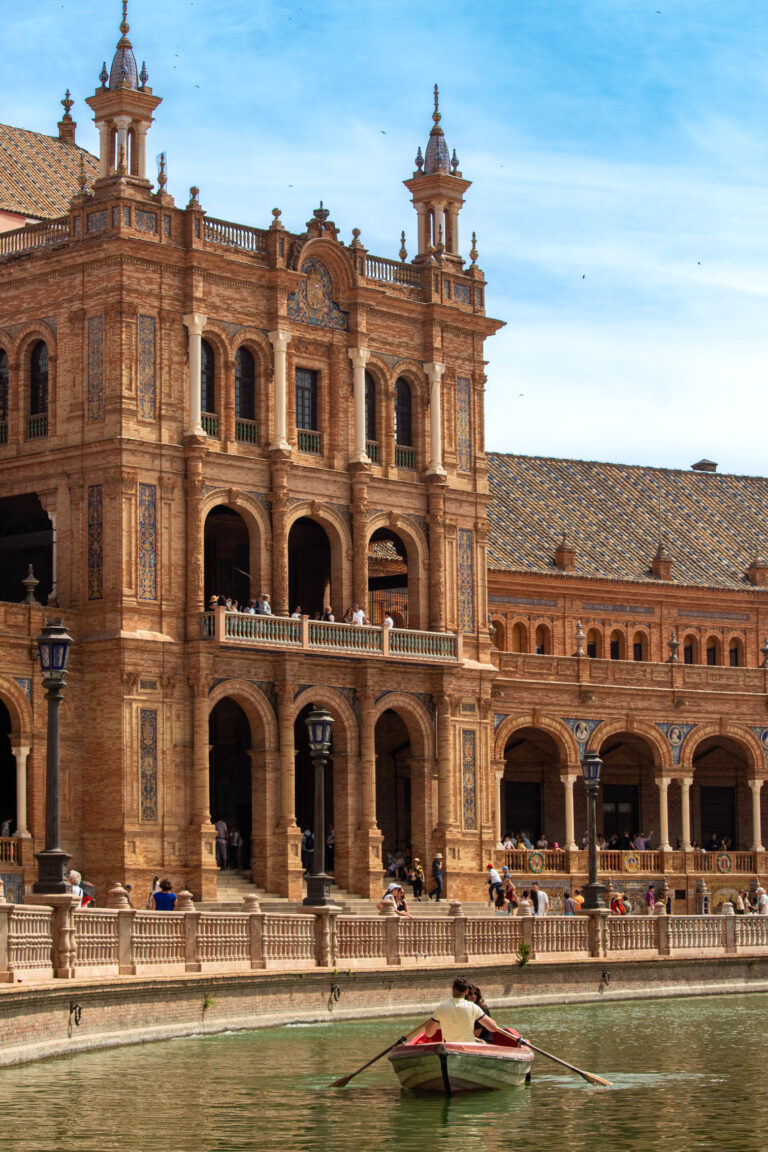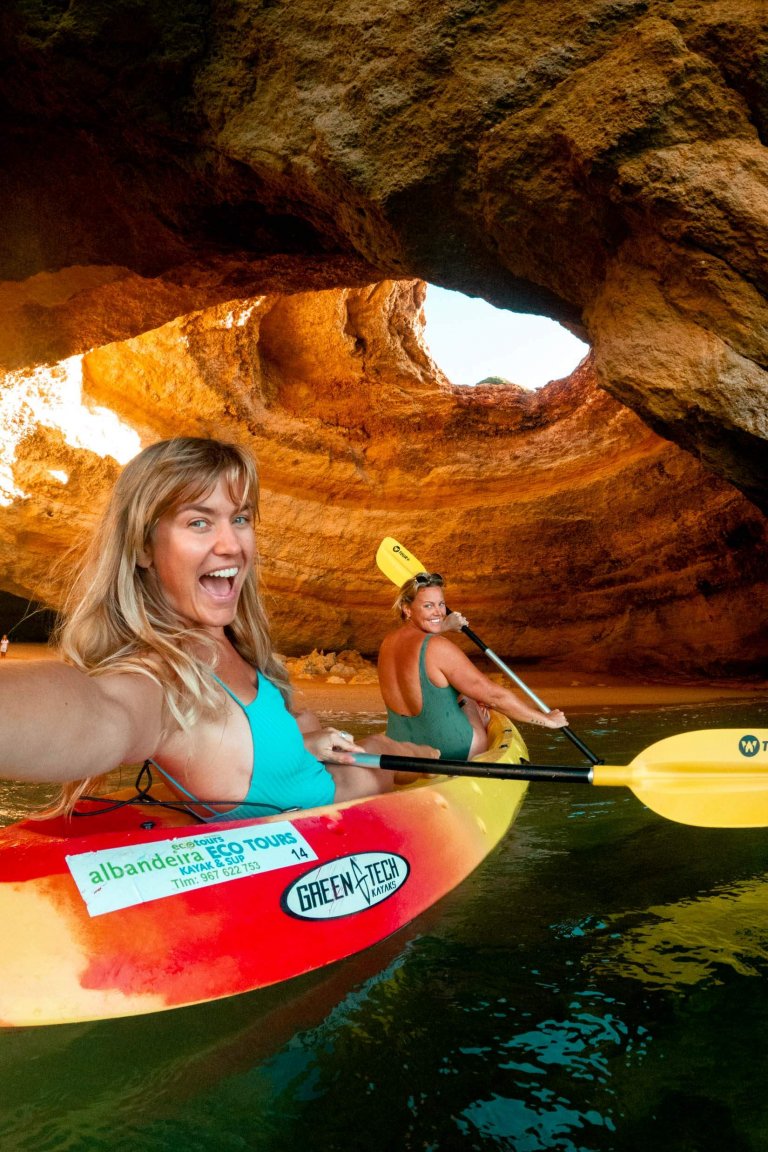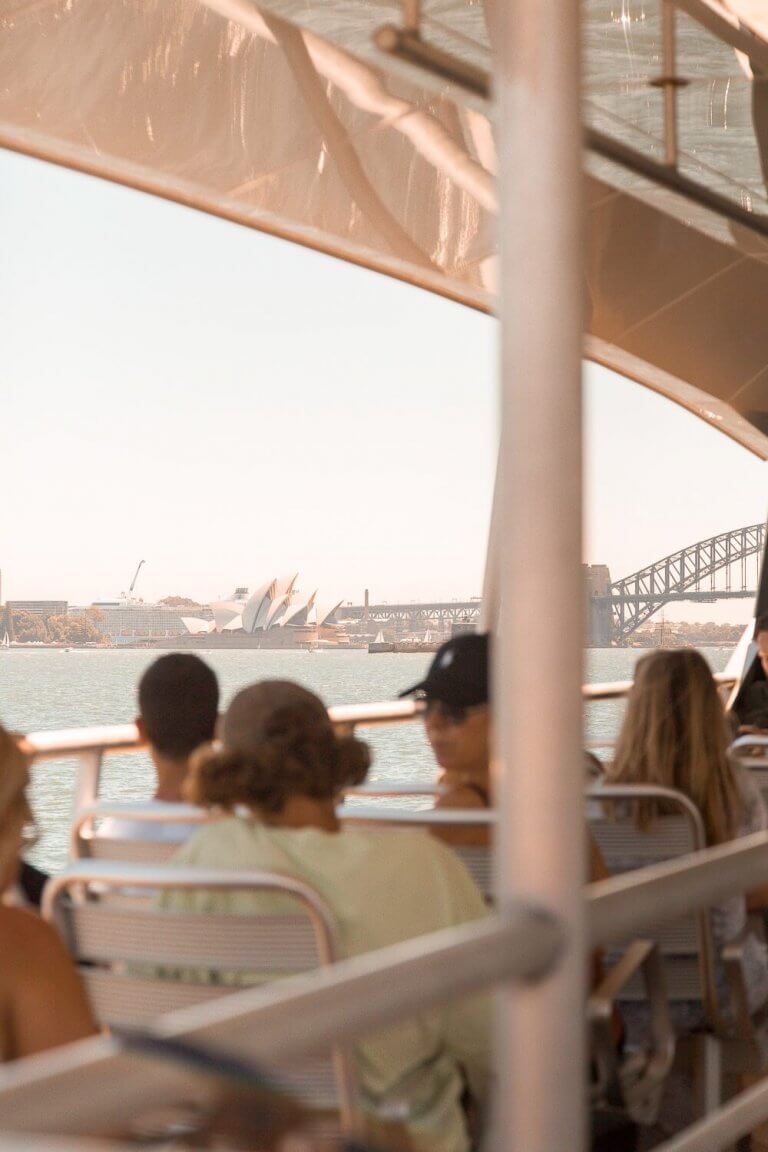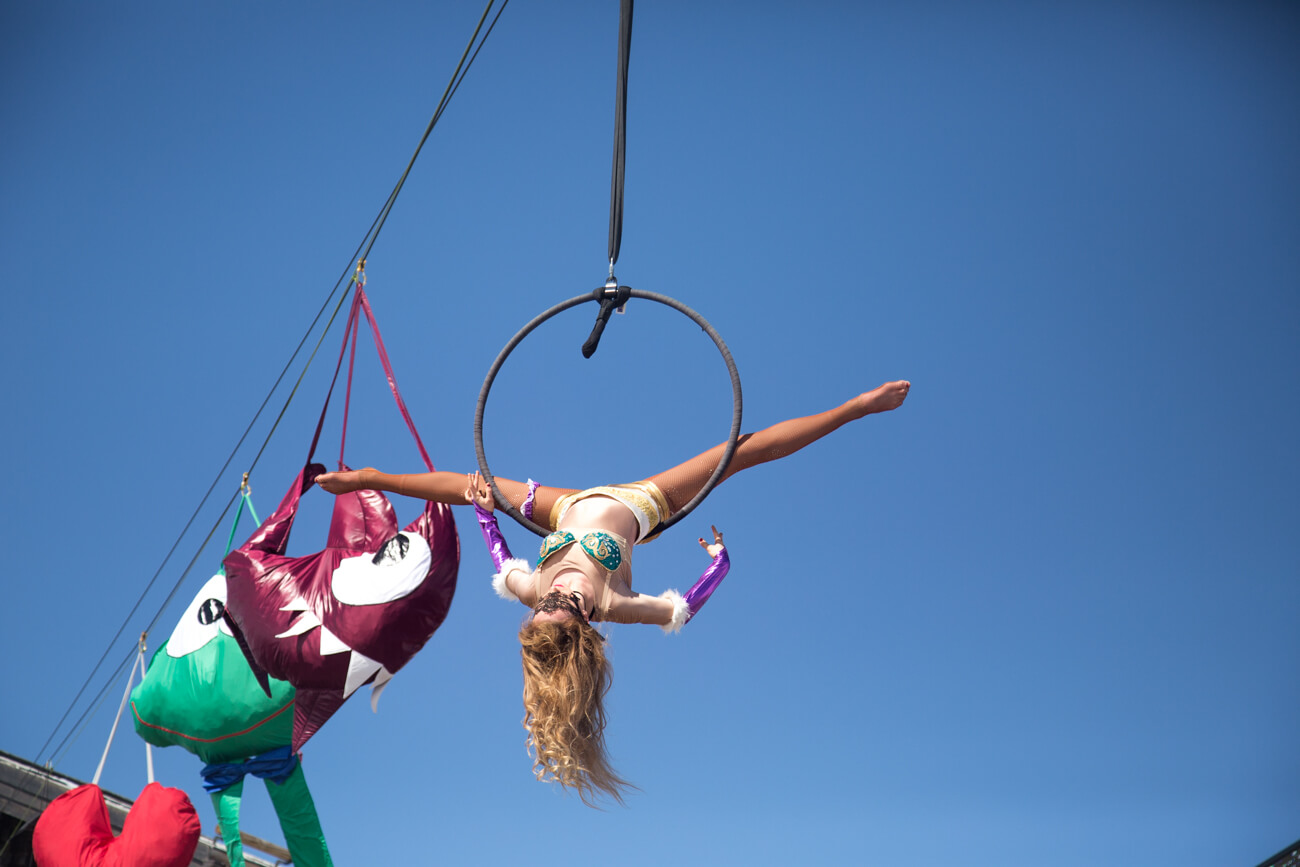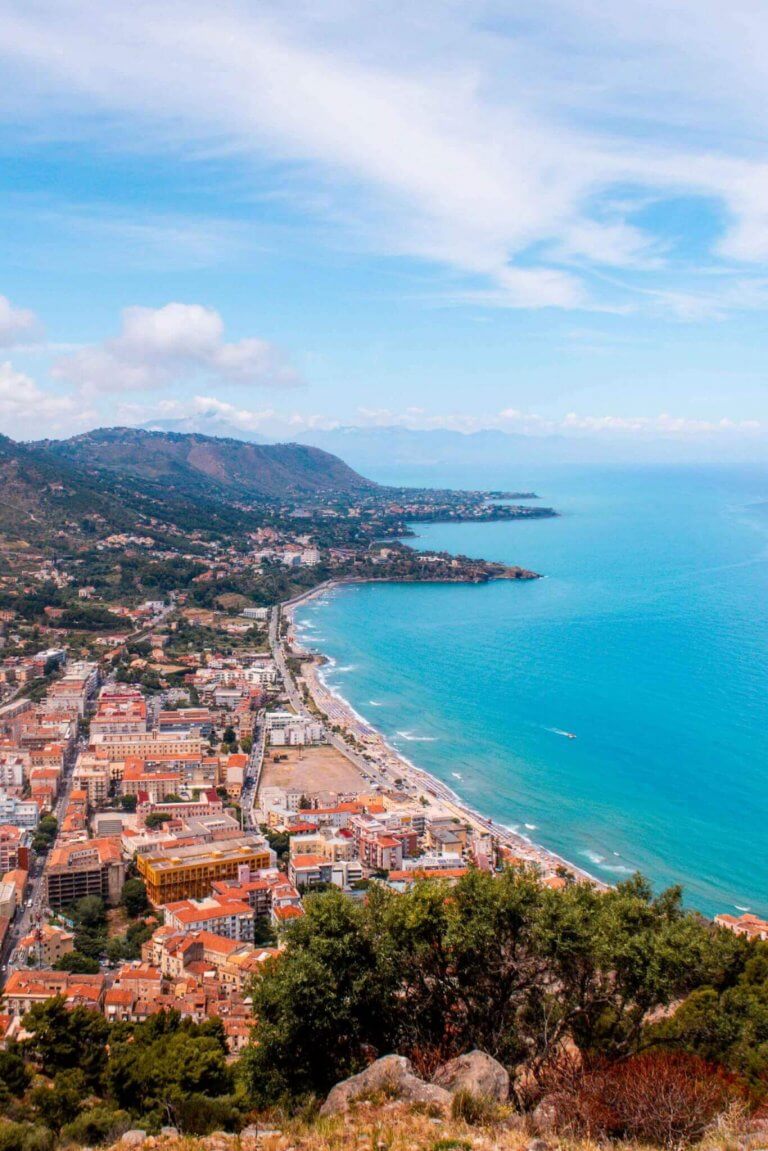A Guide to Hiking the Tour du Mont Blanc
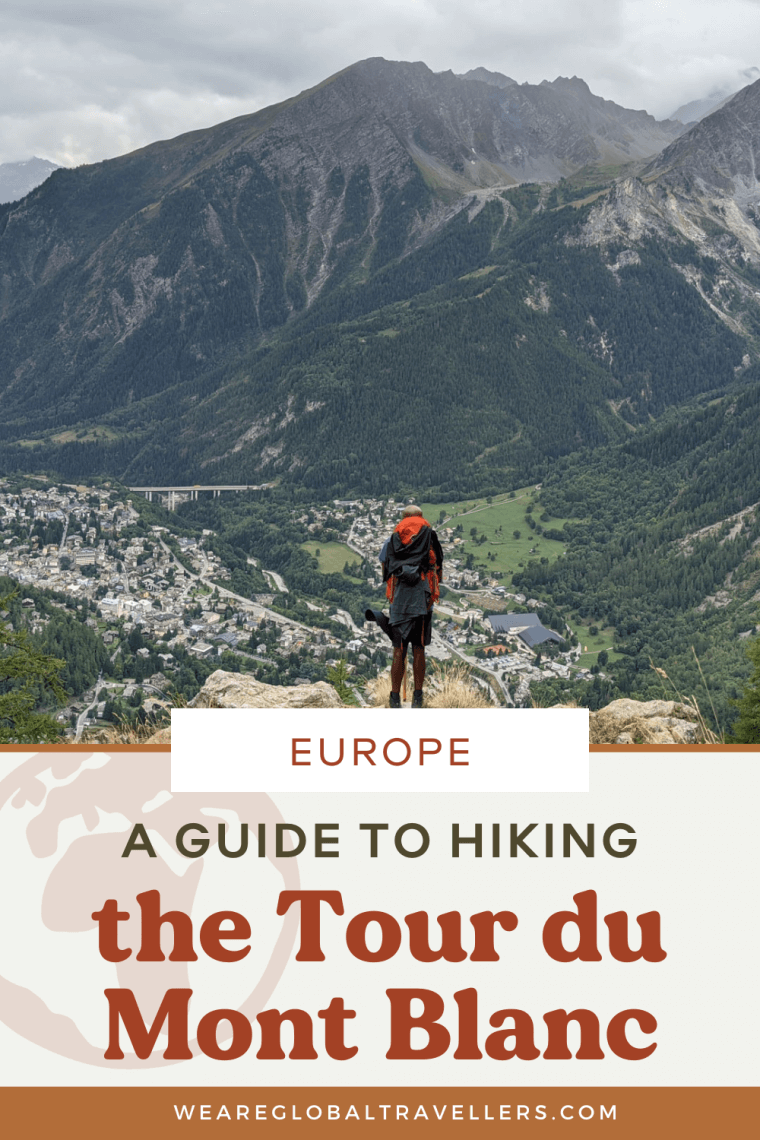
If you’re looking for a guide to Hiking the Tour du Mont Blanc, you’ve arrived at the right travel guide. In this Europe travel guide, I will share my top tips, best routes and advice for taking on the Tour du Mont Blanc adventure.
The Tour du Mont Blanc (TMB) is a grand trek that circumnavigates Mont Blanc in nine to eleven stages. It is a classic among the many GR routes and a prized objective for serious mountain hikers. The European countries of France, Italy, and Switzerland are all part of this magnificent trip.
There is no shortage of breathtaking views in the high mountain ranges, but Mont Blanc is unlike any other mountain in the world. You’ll be amazed at how dramatically this snowy peak, which is the tallest in the world at 4,807 meters, changes as you travel from country to country and from one vantage point to the next. In one moment the landscape is tranquil, and in the next, rocky fingers reach upward through the valleys.
Many different options exist along this path, making it suitable for both short weekend trips and longer stays. It can take anywhere from seven to ten days if you stick to the established Tour du Mont Blanc hiking trails, but I took many side trails that offered even more breathtaking panoramas.
If you’re having trouble figuring out when it’s best to walk this GR route and which alternate routes are worthwhile, read on. On this page, you’ll find the best advice I can give based on my personal experience.
Other travel guides we think you will enjoy:
- A guide to the Acatenango volcano hike, Guatemala
- The best hikes in the Brecon Beacons, Wales
- The best walks and hikes to go on in England
- 16 best hikes to go on in the UK
- A beginner’s guide to hiking
- 8 hikes to go on in Queenstown, New Zealand
- The best day hike in New Zealand: The Tongariro Alpine Crossing
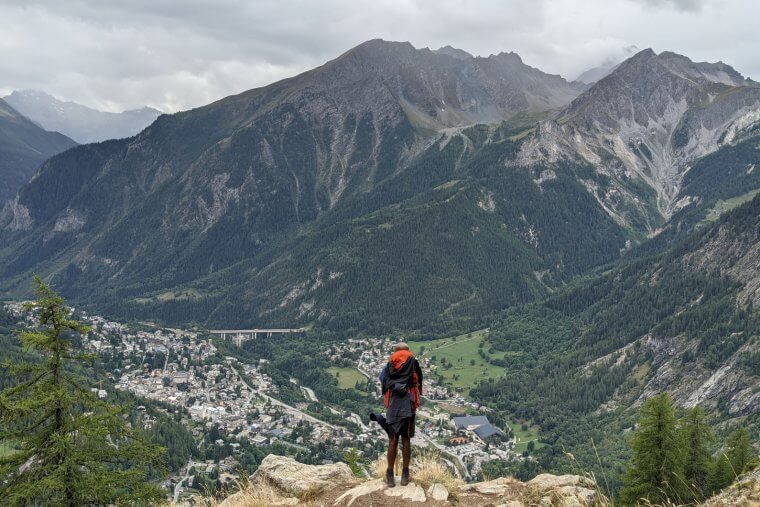
Top Tips and Advice for The Tour Du Mont Blanc
Daypack vs. Backpack
Perhaps you’re doubting whether or not your fitness level is sufficient to summit the Tour du Mont Blanc. No need to worry if this sounds like it might be too much for you to handle. There are many other options for hikers of varying experiences and preferences, and everyone who completes such a challenging journey will feel a sense of accomplishment unique to them.
To avoid carrying unnecessary weight, a backpack is not required unless you intend to pitch a tent for the night. Even though you’ll be passing through a number of small towns, you shouldn’t worry about packing anything more substantial than a snack for lunch, as full meals can be purchased at restaurants and markets along your route, albeit at a hefty price. In any case, make sure you know how to pack your tent into your backpack properly to keep the load as light as possible.
For overnight stays in mountain lodges and hotels, a smaller, lighter daypack is preferable. In comparison to carrying more gear or even just clothing, this route has the major benefit of reducing weight, which can ease knee pain on ascents and descents. Since you intend to walk for about 170 kilometres, you should carry as little as possible.
Sleeping In A Mountain Hut vs. Sleeping In A Tent
During the summer, the Tour du Mont Blanc is swarmed with hikers because of its popularity. Furthermore, wild camping is only permitted above 2500m, which is too cold for most people to sleep in a tent at night. As a result, if you intend to stay out there past sunset, it is best to either make reservations for your stay or find another location closer to town.
The Association of Caregivers Tour du Mont Blanc and Gites maintains a wonderful website at montourdumontblanc.com. This website features information on every Tour du Mont Blanc property, but not every bed and breakfast, inn, or gîte d’étape.
At autourdumontblanc.com, visitors can learn about L’Espace Mont Blanc, a collaborative conservation effort between the Chamonix Valley and Switzerland. There is a directory of available lodgings on the site. Finally, most huts only accept cash, so be sure to bring plenty of that.
Outdoor Gear
If you’re going backpacking, only bring the essentials and the lightest gear possible. Use a backpacking checklist to make sure you have everything you need before setting out on your adventure.
Listed below is the equipment I would bring with me on a return trip to the Tour du Mont Blanc:
- Lightweight tent
- Waterproof hiking boots
- Sleeping bag (this is also mandatory for some mountain huts)
- Sun hat
- Powerbank
- Hiking sticks
- Enough thermal clothing (It gets very cold in the mountains, especially if you sleep in a tent)
- Poncho
Hiking Trails Recommendations for the Tour Du Mont Blanc
Some trails, especially at higher elevations, may still have snow in early July, so keep that in mind as you plan your Tour du Mont Blanc adventure and try to avoid going before the middle of the month. However, there isn’t usually much snow on the official Tour du Mont Blanc, and September is the best time to hike it because there are fewer people on the trail and the weather is perfect. It’s important to book your stay at a mountain lodge in advance because most of them close by mid-September.
Depending on your goals, the Tour du Mont Blanc may offer wildly different scenic experiences at its various stages. Nonetheless, I wholeheartedly endorse the following Tour du Mont Blanc itineraries:
Route one
Les Houches – Contamines
The Tour du Mont Blanc is a difficult hiking trail that goes around Mont Blanc. The official starting point is in Les Houches, France, and you can return there after completing the race. The fastest and most convenient way to get there is by train unless you’re driving yourself.
We set out in the direction of Contamines after reading that the ascent on this trail is less taxing on the knees than the descent. This is also my suggestion, though you are free to hike in a clockwise direction if you prefer to reach Chamonix first.
Going on a hike is a fantastic way to take in some natural beauty and exercise your body. However, what if you seek a greater test of your abilities? Why not try some trails that aren’t as well-travelled, or that are technically challenging, so that you can feel the thrill of success?
You can find both of these paths in the Les Houches – Contamines area, with the first being a bit shorter and less spectacular than the other but still providing good exercise (and maybe some inspiration). Another option involves crossing a Nepalese suspension bridge and the Col de Tricot mountain ridge, both of which offer breathtaking vistas and exciting experiences.
We, of course, followed the unofficial route up to Col de Tricot, which begins at the Bellevue mountain station and winds its way through the woods and up to the summit. To put your mind at ease, we walked the 11 hours to Contamines rather than taking the cable car from Bellevue mountain station. Because of the constant uphill and downhill movement, as well as the weight of our camping gear, this was quite a challenge for our knees.
If you want to get the most out of your trip here without enduring as much discomfort, I recommend carrying only a daypack and staying in huts or hotels. If you find that an adventurous spirit complements your own, know that after two or three days of hiking, things will start to settle down.
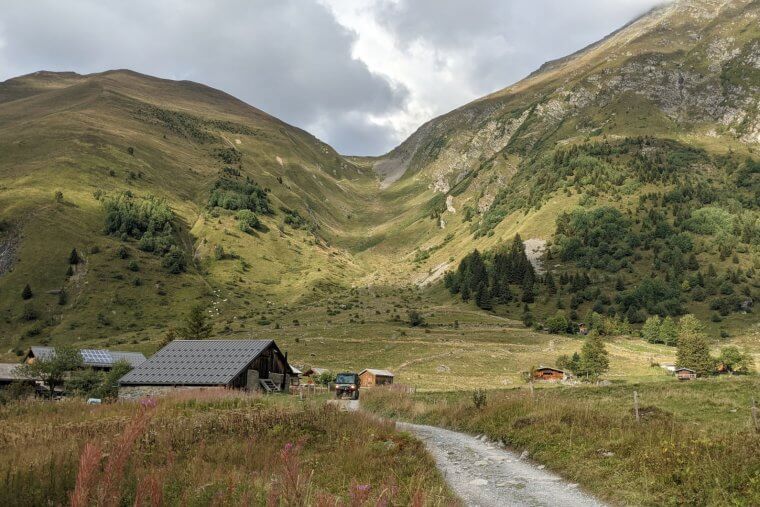
Route two
Contamines – Refuges des Mottets
When you arrive in Contamines, you can choose from a variety of hotels and other lodgings. If you brought your tent and sleeping bags, there’s a designated campsite for you to use.
From Contamines, hikers can reach Refuges des Mottets at an elevation of 1,870 meters by either following the official TMB trail or taking the alternative route, both of which offer unique challenges and rewards. Even though the official TMB route is a good option in the event of bad weather or if you’d rather take the bus, we opted for the alternative trail because it crosses several mountain ridges.
Expect a beautiful ridge walk from Mont Joly to the Aiguille Croche if you take the alternate route. With a picture-perfect panorama of Mont Blanc and the Rochers des Fiz, this path easily takes first place on the list of most stunning hikes in Europe. If you want to avoid the crowds and visit when the trail is snow-free (around the middle of July), then September is your best bet.
It’s up to you if you want to keep going to Refuges des Mottets or stay the night at Refuge de Nant Borrant. We hiked for approximately 12 hours from Contamines to Refuge de Nant Borrant.
The average time is 8 hours, but we were slower than average because of our heavy packs. You can probably guess that by the time we reached Refuge de Nant Borrant, we were in no shape to continue our journey. We were fortunate enough to find a free campsite only a short distance (about 6 minutes) from the Refuge, where we could set up our tent.
The following morning, our trip to Refuges des Mottets began. Given the limited availability of alternate routes, you may experience significant delays along this stretch of the TMB. However, this is not necessarily a bad thing, given the incredible variety found in nature.
The Refuges des Mottets is the very last place you’ll visit in France before entering Italy through the border.
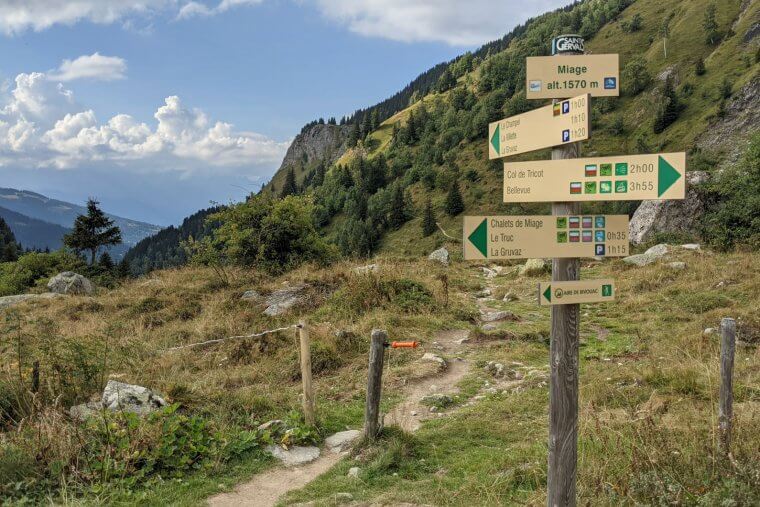
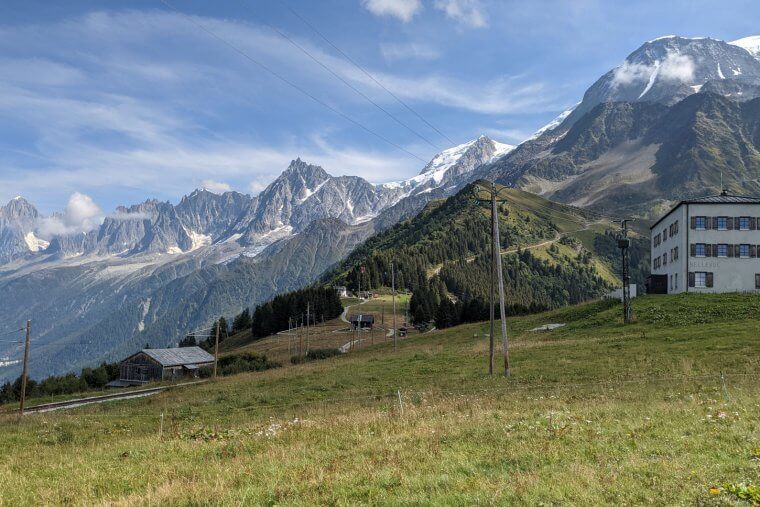
Route three
Refuges des Mottets – Champex-Lac
Crossing the Italian border at the Col de la Seigne causes a sudden and dramatic shift in the surrounding landscape. The Arête du Brouillard, the massive south ridge of Mont Blanc, is surrounded by an unprecedented number of jagged glaciers, white summits, and graceful granite mountains, making the Val Veny and Val Ferret the most beautiful side of the Mont Blanc massif. This is true even though the French side of the mountain is stunning.
On your way to Champex-Lac, you’ll stop by the charming Italian village of Courmayeur for a bite to eat. Like we did, you might want to look for a hotel with spa services if you’re travelling with a large party. Since Courmayeur is only set up for winter visitors, we were able to book a 5-star hotel complete with a sauna, pool, and hammam for only $60 per night.
Following that, you should definitely check out Rifugio Walter Bonatti (2025m), which was named after the legendary Italian mountaineer Walter Bonatti. On a clear day, the view of Mont Blanc from this hut is so breathtaking that a lot of visitors choose to spend the night there.
In order to get from Italy to Switzerland, you’ll have to take a trip over Grand Col Ferret en route to Champex-lac. If you are determined to hike a different route, you can switch it up in Praz-de-Fort by switching to the Arpette route. But keep in mind that both going up and coming down are hard and shouldn’t be done if it’s raining.
Due to the high altitude, any precipitation will likely fall as snow or ice, making the trail unfit for hikers.
Explore ACTIVE TRAVEL ON THE blog here
Route four
Champex-Lac – Les Houches
Champex-Lac is a quaint community that offers great food and recreation opportunities, from a fantastic bakery to a campground. The only problem is that you still haven’t left Switzerland, so in order to get to France, you’ll have to climb yet another mountain. If you make it over to the Col de Balme, this is how you might find the Mont Blanc looking once more.
The TMB’s final is phenomenal. Up until the second-to-last step in Les Houches, the heart of the Mont Blanc region is visible. The walk and the scenery along it are both excellent. For the reason that it travels through the Aiguilles Rouges Reserve Naturelle, one of the most beautiful protected areas in all of France. Depending on the path you take, you may or may not go through Chamonix.
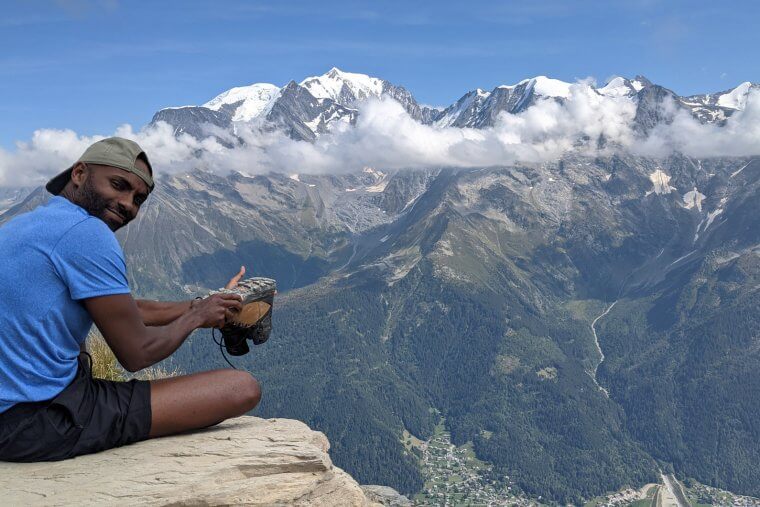
Conclusion?
Overall, the TMB is doable with sufficient preparation.
You can probably find a (pricey) place to stay on short notice in the valley, but if you’re headed to the mountains, it’s best to make reservations ahead of time.
Please give as much notice as possible if you need to cancel your reservation, as the innkeeper will lose money if they have to resell empty rooms. It is common practice on the TMB and elsewhere for hikers to be expected to pay in advance because so few of them adhere to this cardinal rule. You should also bring cash because you can’t use a credit card anywhere.
After September 15th, hikers on the TMB will need to camp in the valley or combine camping with stays in the club huts’ winter rooms in order to complete the trail.
Any tips you’d add to this Guide to Hiking the Tour du Mont Blanc?
Love as always and happy adventuring…
Did you find this post helpful? I’d love you to share it for me.
Pin and save this blog post for later…
